Search Images
Browse Content (p. 224)
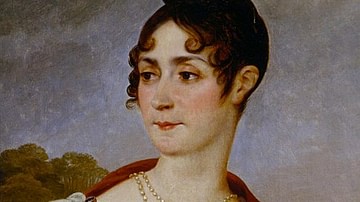
Image
Portrait of Empress Josephine, 1809
Empress Joséphine de Beauharnais (1763-1814), portrait by Antoine-Jean Gros, c. 1809.
Malmaison Museum.
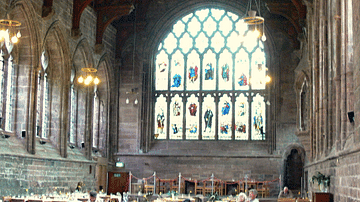
Image
Restored Refectory, Chester Cathedral
The restored mid-13th century refectory (now a cafe) in Chester Cathedral, England. The refectory was the place where monks ate their meals and was once a part of St. Werburgh's Abbey. In the far corner can be seen the original reading pulpit...
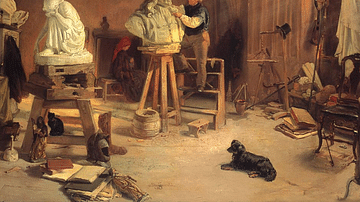
Image
Freitag Sculpting Hevelius
An 1870 oil-on-canvas painting by Wilhelm August Stryowski showing Rudolf Freitag sculpting a bust of the Polish astronomer Johannes Hevelius (1611-1687). (National Museum, Gdańsk)
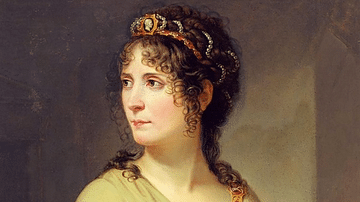
Image
Portrait of Joséphine de Beauharnais
Portrait of Joséphine de Beauharnais (1763-1814) later in life. By Andrea Appiani, c. 1808.
Private collection.
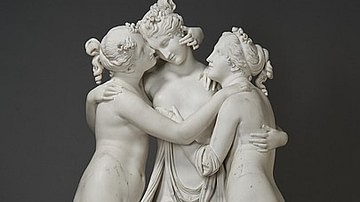
Image
The Three Graces by Antonio Canova
The Three Graces, statue by Italian sculptor Antonio Canova, commissioned at the behest of Empress Joséphine de Beauharnais, c. 1813-1816.
Hermitage Museum, St. Petersburg.
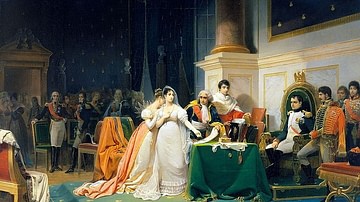
Image
The Divorce of Napoleon and Joséphine
The divorce of Empress Joséphine and Emperor Napoleon, 10 January 1810. Oil on canvas, by Henri Frédéric Schopin, 1843.
Wallace Collection, London.
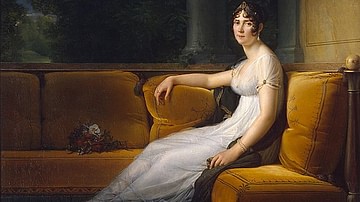
Image
Joséphine de Beauharnais at Malmaison
Joséphine de Beauharnais at her personal residence of Malmaison, oil on canvas by François Gérard, 1801.
Hermitage Museum, St. Petersburg.
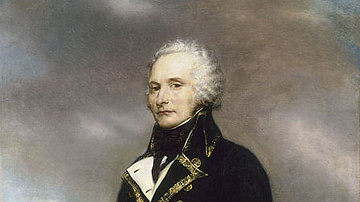
Image
Portrait of Alexandre de Beauharnais
Portrait of Alexander de Beauharnais, oil on canvas by Georges Rouget, 1834.
Palace of Versailles.
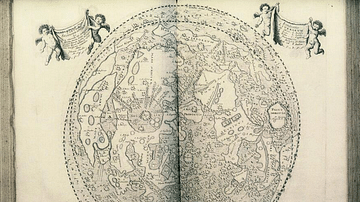
Image
Hevelius' Map of the Moon
A map of the Moon's surface drawn in 1647 by Johannes Hevelius (1611-1687), the Polish astronomer. (Bodleian Library, Oxford)
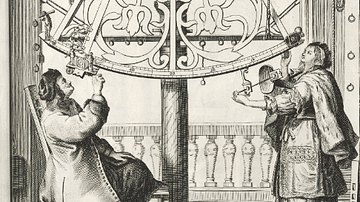
Image
Hevelius & Elisabeth Using a Sextant
A 1673 print showing Johannes Hevelius (1611-1687), the Polish astronomer, and his wife Elisabeth examining the stars using a sextant. From Hevelius's Machinae Coelestis: Pars Prior, (1673), fig. M, facing p. 222.